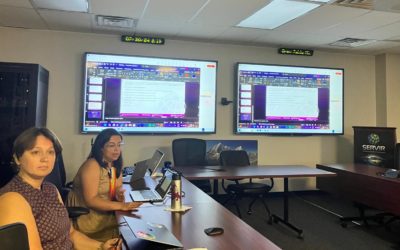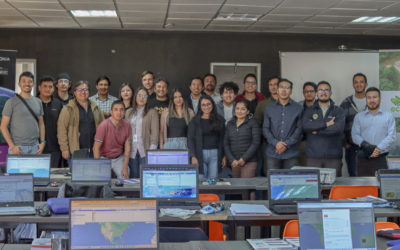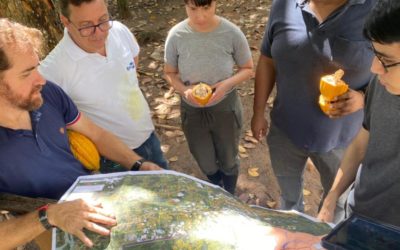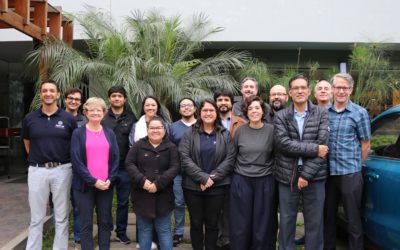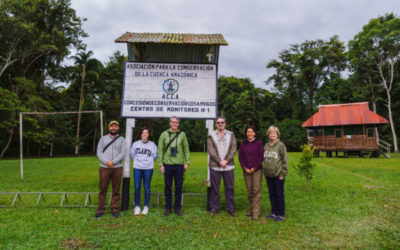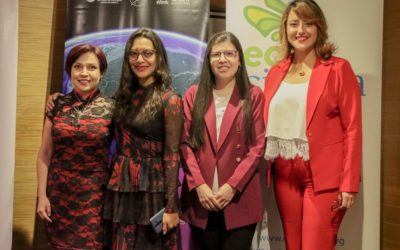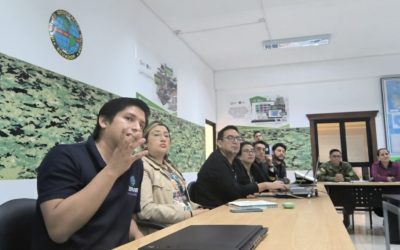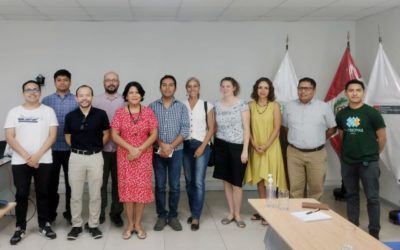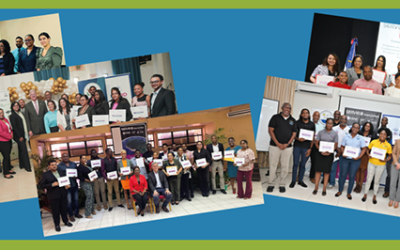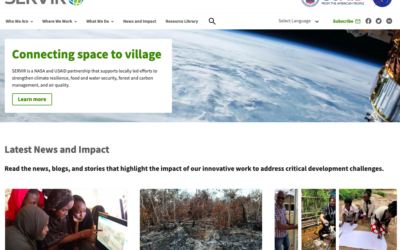News
Strengthening capacity in gender and social inclusion
From July 29 to August 2, the Gender and Social Inclusion Week (GESI) was held at NASA's Marshall Space Flight Center, located in Huntsville, Alabama (USA), to advance the integration of gender and social inclusion approaches in the SERVIR-Amazonia program projects....
Training Ecuador Ministry of Agriculture and Livestock on water erosion monitoring
Fundación EcoCiencia carried out the first phase of training for technicians from the Ministry of Agriculture and Livestock (MAG) within the framework of the SERVIR-Amazonia program, to conclude with the delivery of the Spatiotemporal Monitoring of Water Erosion (MEEH...
Mapping Common Ground for Farmers and Sustainability in the Amazon
By Lena Pransky It may seem like farming is the enemy when it comes to preventing deforestation in the Amazon—and with good reason. The expansion of large-scale farming and cattle ranching is a leading cause of deforestation. However, the role of small-scale farming...
SERVIR Amazonia II kick-off workshop in Lima
SERVIR-Amazonia II officially began operations at a workshop held in Lima between May 29 and 31. Representatives from the center, as well as from USAID and NASA, met to discuss the first activities to be implemented within the framework of the 2024 work plan. This...
Field visit to Los Amigos (Peru)
Within the framework of the SERVIR-Amazonia program, professionals from the National Aeronautics and Space Administration of the United States of America – NASA and the United States Agency for International Development – USAID, visited the Los Amigos Conservation...
Women in spatial data science
To make visible the work of women in spatial data science and how they use it in their work, R-Ladies and Fundación EcoCiencia, as part of the commemoration of Women's Day, held the event “Women in Spatial Data Science”, on May 7, 2024. The invited speakers were:...
GEOGLOWS initiative at the AMERIGEO
Fundación EcoCiencia, thanks to the support provided within the framework of services of the SERVIR-Amazonia Program, together with INAMHI (Instituto Nacional de Meteorología e Hidrología) with the GEOGLOWS initiative, will be part of the GEO (Group Earth...
Monitoring of forest carbon dynamics in response to disturbances in the southwestern Amazon
From February 5 to 8, the presentation of the project "Monitoring of forest carbon dynamics in response to disturbances in the southwestern Amazon" was held in Lima and Madre de Dios. This event was organized under the leadership of Dr. Izaya Numata from the...
Six Caribbean Countries Strengthened in Geospatial Technology for Mangrove Protection and Hydrological Event Monitoring
Since its establishment in 2005, SERVIR Global has collaborated with numerous countries worldwide to promote the use of satellite and geospatial information in decision-making to strengthen weather and climate resilience, agriculture for food security, water security,...
Explore the redesigned SERVIR Global website
Visit SERVIR’s newly redesigned website, which showcases the breadth and impact of SERVIR’s global network. SERVIR combines cutting-edge science and data from NASA with development expertise from USAID to connect space to village. Our work in Africa, Asia, and Latin...
Subscribe to our newsletter
Newsletters




